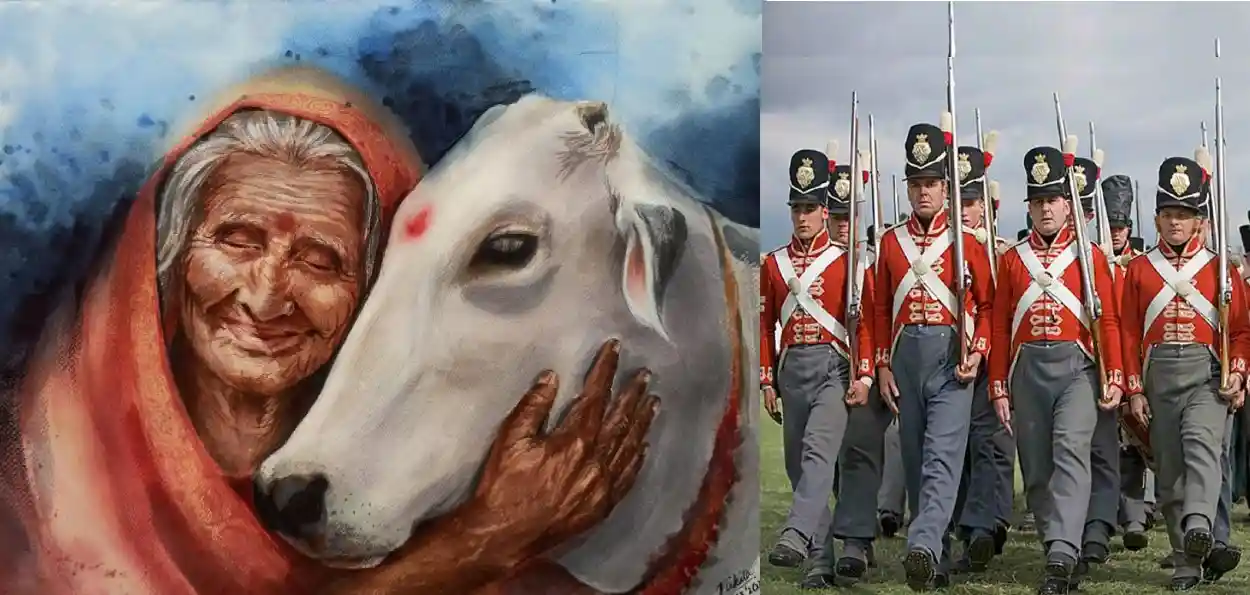
Saquib Salim
“Islam does not insist on cow sacrifice and Muslims should abandon it in deference to the religious feelings of Hindus. Muslims who sacrifice cows simply to spite the Hindus are violating a very sacred percept of Islam which enjoins due regard for the feelings of others.” Hakim Abdul Karim Khan of Gorakhpur wrote in Mashriq, an Urdu daily after riots broke out at Ayodhya on Eid ul-Azha (Bakra-Eid) in 1912.
Cows are sacred for Hindus and Muslims, for centuries, had refrained from slaughtering cows. Ulema as well as a majority of Muslim rulers had completely or partially banned the cow slaughter even on Eid ul-Azha. Muslims would eat mutton and other animals for food but would not touch cows, which are worshipped by Hindus.
ALSO READ:
In the British period, things changed as the Europeans promoted cow slaughter to fulfill their demand for beef. Muslims financed by the English or their loyalists remained adamant about killing cows, but most of the educated Muslims including Ulema would stop people from this act.
In 1910 a Hindu-Muslim riot broke out in Kolkata on Eid ul-Azha. Surat-i-Mustakim, an Urdu daily from Kolkata, urged Muslims not to indulge in cow slaughter because it would only help the cause of the British. The editor of the newspaper wrote that the
British were afraid of Muslims joining the nationalist movement started by Hindus in Bengal thus sowing the seeds of enmity between the two communities. It claimed that the Muslims indulging in cow slaughter were the paid British stooges.
Hindus also understood these evil designs by the British and encouraged the Muslims to oppose these schemes. In 1912 Marwari, a Hindi newspaper from Nagpur published an article thanking the Muslim community for abstaining from killing cows and hoping the model would be followed in the whole of India.
The Indian Patriot, English daily in South India, appreciated Muslims for abstaining from cow slaughter. It hoped that the efforts of educated Muslims would reach out to the masses.
Maulvi Akbar Khan and Akram Khan in their editorial of Muhammadi, a Kolkata-based daily, appealed to Muslims, before Eid ul-Azha of 1912, to not go for cow slaughter. They wrote, “Muslims ought not to injure the feelings of their Hindu neighbours by slaughtering cows”. They also wrote that the Quran taught Muslims not to hurt the feelings of the followers of other faiths and that cow slaughter is not a part of Islam.
Daily Bharat Mitra, a Bengali newspaper, also carried an article to express gratitude towards Nawab of Murshidabad for banning cow slaughter before Eid ul-Azha in 1912.
These examples show that educated and anti-colonial Muslims always opposed cow slaughter. Then why did it remain a contentious issue? Because the British needed it as it was their staple. A 1920 official report shows that the British army was quite worried over the trend because Indians were not letting them slaughter cows in cantonments. Even Muslim Nawabs would not allow it in their jurisdiction.
ALSO READ: Eid al-Adha is not about slaughtering animals, it’s about acquiring piety
Ulema have always maintained that hurting the religious feelings of others is not permissible until it is in direct contradiction with any pillar of Islam and cow slaughter is not obligatory.
